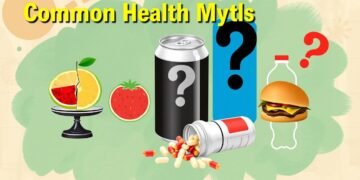Over-the-counter (OTC) medications play a vital role in healthcare, providing accessible and convenient options for individuals to manage common health issues without a prescription. From relieving headaches to soothing allergy symptoms, OTC medications offer relief for a wide range of ailments. In this article, we’ll explore the benefits, considerations, and safe usage of OTC medications.
Benefits of Over-the-Counter Medications
Accessibility: One of the most significant advantages of OTC medications is their easy accessibility. You can find them at your local pharmacy, grocery store, or even online. This accessibility ensures that you can quickly obtain relief when needed.
Affordability: OTC medications are often more budget-friendly than prescription drugs. This cost-effectiveness makes them an attractive option for individuals looking to manage minor health issues without breaking the bank.
Immediate Relief: OTC medications provide swift relief for common symptoms. Whether you’re dealing with a cold, minor pain, or allergies, you can find a suitable OTC option to alleviate discomfort.
Common Types of OTC Medications
Pain Relievers: OTC pain relievers like acetaminophen, ibuprofen, and aspirin help manage various types of pain, including headaches, muscle aches, and joint pain.
Antihistamines: These medications, such as loratadine and cetirizine, are effective at relieving allergy symptoms like sneezing, runny nose, and itchy eyes.
Cough and Cold Remedies: OTC cough syrups, decongestants, and throat lozenges offer relief from cold and flu symptoms like congestion, coughing, and sore throat.
Antacids: Individuals dealing with heartburn or indigestion often turn to antacids like calcium carbonate to neutralize stomach acid.
Topical Analgesics: These are creams, gels, or patches applied directly to the skin to alleviate pain and inflammation in specific areas, such as joints or muscles.
Considerations for Safe Usage
While OTC medications offer numerous benefits, it’s crucial to use them safely and responsibly. Here are some essential considerations:
Read Labels Carefully: Always read the label and packaging of OTC medications before use. Pay attention to dosage instructions, warnings, and potential side effects.
Consult a Healthcare Provider: If you have underlying health conditions, are pregnant, or are taking other medications, consult your healthcare provider or pharmacist before using OTC medications. They can help you choose the most suitable option and ensure there are no potential interactions.
Follow Dosage Instructions: Stick to the recommended dosage and do not exceed it. Taking more than the suggested amount can lead to adverse effects.
Mind Expiration Dates: Check the expiration date on OTC medication packaging. Expired medications may not be effective and could pose risks.
Monitor for Allergic Reactions: Be aware of any allergic reactions or adverse effects. If you experience hives, difficulty breathing, or swelling, seek immediate medical attention.
Avoid Alcohol: When taking OTC medications, it’s advisable to avoid alcohol, as it may interact negatively with certain drugs.
Keep Out of Reach of Children: Store OTC medications securely and out of the reach of children to prevent accidental ingestion.
OTC Medications vs. Prescription Drugs
OTC medications have their place in managing minor health issues, but they are not a substitute for prescription drugs when dealing with more serious conditions. Here’s how they differ:
Regulation: OTC medications are subject to strict regulatory guidelines, ensuring their safety and efficacy for self-care. Prescription drugs, on the other hand, require a healthcare provider’s assessment and approval.
Complex Health Conditions: OTC medications are suitable for addressing mild to moderate symptoms and conditions. Complex or severe health issues typically require prescription medications under the guidance of a healthcare professional.
Strength and Dosage: Prescription drugs often have higher strengths and specific dosages tailored to an individual’s needs, which is not the case with OTC medications.
Cost: OTC medications are generally more affordable than prescription drugs, making them a cost-effective choice for many individuals.
Conclusion
Over-the-counter medications provide accessible and affordable options for managing a wide range of common health issues. By understanding their benefits, reading labels carefully, and using them responsibly, you can harness the power of OTC medications for safe and effective self-care. However, remember that while OTC medications are valuable tools, they are not a replacement for professional medical advice and prescription drugs when needed. Always consult with a healthcare provider for comprehensive healthcare management.
Disclaimer
This article is intended for informational purposes only and should not be considered medical advice. Over-the-counter medications should be used according to label instructions and under the guidance of a qualified healthcare provider when necessary. If you have specific health concerns, medical
























































Discussion about this post